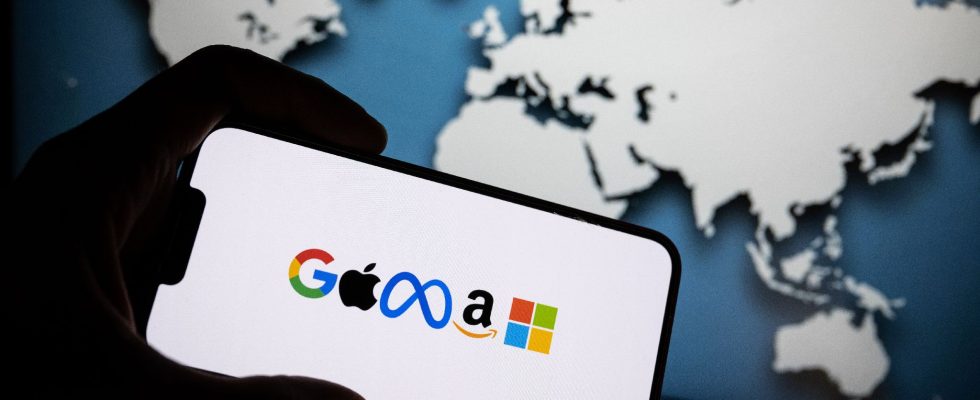Preliminary discussions, adoption, publication, entry into force, actual application… The tortuous course of European texts tends to confuse people’s minds. This time, there it is: the Digital Services Act (DSA) is in place. The new rules of conduct for major Internet platforms initially affect 19 of them, the most important, those belonging to Gafam – Meta, Instagram, etc. -, but also X (ex-Twitter), Booking, Zalendo or AliExpress. For these giants with more than 45 million users in Europe, and more particularly for the social networks concerned, this is the hour of truth.
The choice left to users to deactivate the personalization of content based on the exploitation of their personal data, as well as the prohibition of targeted advertising to minors, risk weakening their economic models. The moderation efforts required of them, in order to limit illegal content – racist, anti-Semitic, child pornography, etc. – should also make their lives more difficult. Last but not least, the “magicians” of tech will have to reveal their little algorithmic secrets, these mathematical formulas which guide us surreptitiously in our uses on the web. The curtain rises and the lights come on, for the good of democracy and living together. In the best of worlds?
Will Europe be up to it?
The legislator fought with Big Tech to release this unpublished text on a global scale, presenting it as the end of the “Wild West” online. Now just have to apply it. To its credit, “confidence flaggers” are appointed in each member country of the Union. Power-ups, in the form of surprise visits to company premises, will take place. About a hundred employees of the European Commission and several dozen experts will work on a daily basis to enforce this DSA. It is to be hoped that the EU will be able to learn the lessons of the past, and in particular of its previous major law relating to the Internet, the General Data Protection Regulation (GDPR), adopted in 2018. A protective text which laid down a legal basis essential, without reversing the balance of power between the digital giants and the citizens.
In the eyes of the general public, the GDPR is those pesky little banners that pop up at the entrance to every site you visit. Those who ask whether or not we accept the famous “cookies”, these cookies that trace our online journey and target us commercially. Operation not very compatible with real uses, especially when quickly consulting a site from your smartphone, in transport or between two appointments. By weariness and lack of time, many click on the first button they see. Web design heavyweights, who know this well, took pleasure in making the “Accept all” box much more visible than those allowing to refuse all or to customize the settings.
Finally, the too long years that elapse between the start of investigations and possible convictions due to breaches of the GDPR are godsend for digital companies. Even if the fines are raining down at the moment, no financial penalty has really affected the balance sheets of Big Tech and its billions of euros in profits on the Old Continent.
The DSA, on the other hand, will allow a faulty company to be penalized up to 6% of its annual turnover. For Meta or Google, we are talking here of several billion euros. Heavy. Exclusion from the European market is even considered in the event of a repeat offence. In other words, the atomic weapon. Will the Twenty-Seven have the courage to use it if necessary?
